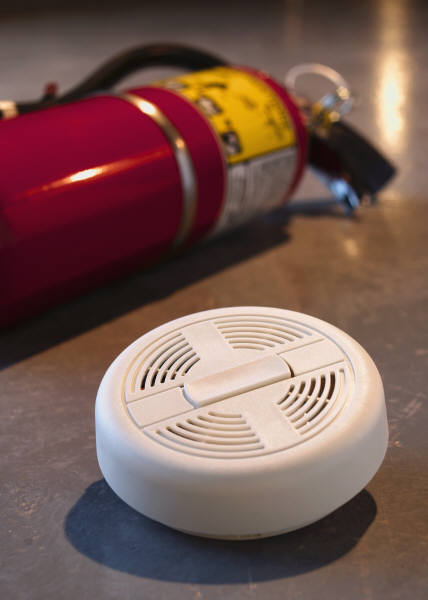Juvenile Justice System Guide
“The only real mistake is the one from which we learn nothing.”
--John Powell
REASONS FOR BEING IN COURT
Delinquent: charged with breaking a law of a State or City Ordinance.
Status Offender: Charged with being beyond control of his/her parent(s) or habitually truant. Examples include not going to school, not keeping a curfew, running away from home, not obeying parent rules, and using drugs, alcohol or tobacco under age.
WHAT THE COURT MAY DO
Delinquent: May be placed on probation under the supervision of a Probation Officer at home or in a group home or other restricted program. The Court may alternatively place a delinquent in the custody of the State Office of Juvenile Services (OJS) / Health and Human Services (HHS) where he/she may be supervised at home, in another placement in the community (such as foster care, group home, or residential treatment), or at the Youth Rehabilitation Treatment Center (YRTC) in Geneva or Kearney.
Commitment to Office of Juvenile Services / Health and Human Services (HHS): HHS provides Court-ordered services to youth including those of the Office of Juvenile Services, the Youth Rehabilitation Treatment Centers, and Out of Home Placement.
Status Offender: Special supervision may be required. Offender may be placed at home on Probation or made a State Ward through the Department of Health and Human Services for out-of-home placement or services in the home.
YOUR RIGHTS
You have a right to:
- Know what has been filed against you;
- An attorney (a Public Defender may be provided at no cost);
- Face and cross-examine witnesses;
- Present evidence in your own defense;
- Testify if you wish; however, you do not have to testify;
- Be advised by the Judge as to what the Court can do with you; and
- Appeal the Court’s decision to the Nebraska Court of Appeals or Nebraska Supreme Court.
ADVICE FOR COURTROOM BEHAVIOR
DO…
- Dress neatly and cleanly, as you would for an important meeting.
- Be 15 minutes early, so you are ready to attend the hearing on time.
- Speak loudly and clearly.
- Be honest and make eye contact when talking.
- Respond to Judge’s questions by saying, “Yes, Your Honor,” or “No, Your Honor.”
DO NOT…
- Curse, swear or lie;
- Get angry or roll your eyes;
- Walk out of the courtroom (you could be held in contempt;
- Speak or act rudely;
- Take a cell phone into the courtroom;
- Slouch or chew gum; or
- Wear sagging pants, offensive T-shirts or gang-related items.
DETENTION
Confinement in a locked facility for a period of time until your case is tried or a more suitable placement is found.
STAFF-INTENSIVE PLACEMENT
Unlocked staff-intensive placement for a period of time until your case is tried or a more suitable placement is found.
YOU MAY BE PLACED AT A DETENTION OR STAFF-SECURITY FACILITY IF YOU…
- ...fail to follow court orders (any law violation, including Court orders to obey your parents’ rules and curfew, and/or attend school).
- ...are a runaway youth (a history of running from home or if you run from your Court-ordered placement, such as foster or group home).
- …are a danger to yourself or others (violent, aggressive, gang-related behavior or use of alcohol or drugs).
- ...are being discharged unsatisfactorily from a placement facility. If you are not following rules of your Court-ordered placement and are discharged, you may be detained.
- ...an OJS evaluation is ordered to be done residentially.

An evaluation can be ordered by the judge to be completed while you are detained.
WHEN A YOUTH IN CHARGED WITH A CRIME:
| Step |
Description |
| 1. Arrest |
Upon arrest by Law Enforcement, the Officer may: 1) Street-
release, 2) Cite and release to a parent, or 3) Arrest and get authorization to detain.
|
| 2. Detention Decision |
If recommended by Law Enforcement, a Probation Officer assesses for detention or release to parent. If detained, the Deputy County Attorney reviews all information files the appropriate Petition and requests a hearing, which should be held in a timely manner. The Court reviews all facts and determines if further detention is needed. A Petition generally must be filed within 48 hours of detention, excluding weekends and holidays. If the youth is not detained, a report is forwarded to the County Attorney for a filing decision.
|
| 3. Filing |
A petition is filed in the court, or declined. The matter might be diverted without filing a Petition. The County Attorney may decide to charge the youth in Adult Court. If charged with a felony or misdemeanor, the youth could be detained.
|
| 4. Arraignment |
Prior to the hearing, the youth meets with his/her attorney to discuss charges and how to proceed. Through the attorney, a plea of admission, denial, or no contest is entered. If the youth denies the charge(s), the Court will schedule an Adjudication Hearing. If youth admits to the charge(s), the Court will schedule a Disposition Hearing and may order evaluations.
|
| 5. Adjudication |
This is the trial of the Petition, where the State must prove up on the charge(s). If Court finds the Petition to be true, Court acquires jurisdiction of the youth and the matter is then set for disposition. If the Petition is not found to be true, the case is dismissed.
|
| 6. Predisposition Investigation |
The Court may order a predisposition investigation (PDI) by a Probation Officer prior to the disposition hearing, which involves Collecting information from the youth, his/her family, the schools, previous mental health providers, and others. This is so the Judge can make an informed decision about how best to hold the offender accountable and address his or her specific needs. More evaluations may be required (such as chemical dependency or mental health). In abuse-neglect cases, the PDI and other evaluations are done by the Office of Juvenile Services (OJS).
|
| 7. Disposition Hearing |
Based on the PDI and other case information, the Court orders a plan to ensure accountability and rehabilitation. The plan could include out-of-home placement, further evaluation, treatment, probation, intensive supervision, or other services.
|
FREQUENTLY ASKED QUESTIONS
What is Juvenile Court?
Nebraska laws have separate guidelines for juveniles (as opposed to adults, age 18 and over) who have violated the law or have other behaviors in need of intervention. Juvenile Court involvement is not considered to be a criminal record, but is intended to provide the juvenile an opportunity for rehabilitation.
What is a petition?
A petition is a legal paper, filed in the Court, outlining why you are being brought to court.
How will I know when to go to court?
You will receive a summons or letter giving the date, time, and location. The number of times you attend depends on individual circumstances. Inform the Court and Probation Officer of address or telephone changes.
What if I miss a hearing?
The judge could order you to be picked up by law enforcement, detained, and brought before the Court to explain why you ignored the Court’s notice.
What if I do not follow the Court’s rules?
A motion to review or revoke your placement or probation may be filed by the County Attorney, asking the Court to place more severe requirements on your probation or place you in an institution or state juvenile correctional facility.
Can my record be sealed (kept confidential)?
You may ask the Court to seal your records. This sets aside the record and it cannot be opened without Court approval and good cause. However, even if sealed, certain persons or agencies may still be able to access your records.
What if I waive the right to an attorney?
If you do so, you would be representing yourself. If you do not have an understanding or knowledge of legal options and process (such as motions to make, how to call and examine witnesses, and how to request services from the Court), you may be adversely affected. Remember, you can request an attorney to represent you at any point in the process.
| Office |
Phone Number |
| Attention Center |
(308) 236-1922 |
| County Attorney’s Office |
236-1222 |
| County Court |
236-1228 |
| City of Kearney Attorney’s Office |
237-3155 |
| Crisis Assistance Center |
(800) 325-1111 |
| Detention Center |
(308) 233-5281 |
| District Court |
236-1246 |
Health & Human Services (HHS)
• Geneva/Kearney
• Office of Juvenile Services (OJS)
• Out-of-home Placements
• Youth Rehabilitation and Treatment Centers
|
865-5592 |
| Juvenile Diversion |
236-1922 |
| Truancy/Juvenile Diversion |
236-1920 |
| State Probation |
236-1251 |
| Buffalo County Sheriff |
236-8555 |
Kearney Police Department
• non-emergency
• EMERGENCY
|
237-2104
911 |
| Family Resource Council |
237-4472 |
| Nebraska Workforce Development |
865-5404 |
Region III
• Early Intensive Care Coordination
• Professional Partner Program
|
237-5113
Ext. 238
Ext. 238 |
| Buffalo County Community Health Partners |
865-2284 |
Each individual is entitled to be, and is capable of being, responsible for his or her lawful participation in society.
Revised from the Crime Commission brochure “A Guide to Juvenile Court for Parents & Children.”
A printer-friendly version of this page is available.
Your Day in Court
Several different types of cases involving paternity and/or child support are handled by the Buffalo County Attorney’s Child Support Services office. Often these cases will be scheduled for trial or other court hearing. Your attendance may be required at one of the hearings. This section is designed to provide parties and other court witnesses with basic information about appearing in court. Additional information may be provided to you by your attorney, if you have one, or a member of our office who is assigned to your case.
Notice of court hearings
If you are required or requested to appear for trial or other court hearing you will typically receive notice of the hearing one or two weeks ahead of time. Occasionally you will be notified closer to the hearing date, if, for instance, the court has only given our office a short notice of the trial date. Paternity and child support cases are typically heard on only two days each month (typically Wednesdays and Thursdays). Scheduling of your hearing is limited to the available dates given to us by our court.
Types of hearings
Over 80 percent of child support related court hearings fall into one of three categories:
- Paternity establishment;
- Orders to Show Cause, also known as “contempt” hearings; or
- Child support modifications
The court also hears requests to appoint counsel for indigent parties, as well as requests to suspend or reinstate child support. Other issues may be addressed by the court as needed.
Length of Hearings
Up to twenty court hearings are typically scheduled each day before the child support referee, who is the hearing officer appointed by the district judges to receive evidence and make final recommendations to the district judge. The length of hearings ranges from ten minutes to the better part of a day, in more complicated cases. Most hearings take less than one hour to complete. Occasionally hearings will be recessed or “continued” until another date, when the court’s schedule or other factors dictate. Court hearings are scheduled between 9 am and 3 pm.
It is a good idea to bring a book or magazine with you, as sometimes court hearings run late, and you may have to wait for your hearing to be called. Every attempt is made to minimize the chances of this happening, but delays can happen due to unforeseen circumstances.
Do not bring children
Do not bring small children to court! Silence must be observed by all spectators when in court, and for this reason children are generally not permitted inside a courtroom. Our courthouse does not have child care facilities or anyone to watch your children. Please make arrangements for the care of your children while you are in court.
Turn off cellphones
Please be sure your cell phones and electronic devices are OFF or silenced when in the courtroom. A device that causes a disruption of court activity may be confiscated and its owner may be found in contempt of court.
We do not represent you
The Buffalo County Attorney’s office is prohibited by law from representing any private citizen. Our attorneys and staff work on behalf of the “State of Nebraska.” You may hire your own attorney to represent you in court if you wish, or you may choose to represent yourself. If you do hire an attorney, make sure to inform the child support services office as soon possible of this fact.
What to wear for court
Courtrooms are formal places, and you are expected to dress accordingly. Please be neat and clean. While no one expects you to purchase new clothes for court, be advised that T-shirts, halter tops, frayed shorts, flip-flops and similar attire are not considered respectable courtroom attire, and you may be sent home to change clothing, delaying your hearing. Men must remove hats/caps before entering the courtroom.
What to bring to court
Please be on time for your court hearing. Otherwise other cases may “leap frog” ahead of your case.
In general, you should bring any witnesses or documents you believe are needed to prove your case.
If you are a custodial parent appearing for a paternity trial, you should bring proof of your income both at present as well as for any previous times where you are seeking “retroactive” child support. Any correspondence you have from the other parent, discussing your child or financial issues would be valuable to bring to court. You might want to discuss this in more detail with our office before coming to court.
If you owe child support, and are appearing to answer to an “order to show cause,” you should consider bringing all documentation available to you in support of your position. If you claim a medical condition that prevents or interferes with your ability to work full time, for example, bring all related documents from your treating physician, the social security office, or the like. This type of information might also be useful for noncustodial parents in new paternity cases, as you will be asked to detail your earning capacity for the purpose of setting a child support award.
If you are applying for a court appointed attorney (only noncustodial parents and alleged fathers may apply for court appointed attorneys) you should consider bringing your most recent federal tax return, a recent pay stub, and any other financial documentation to substantiate that you are unable to afford the services of a private attorney.
What happens in court
The court always tries to resolve all issues presented to it in one hearing. Coming to court prepared minimizes the chance that you will have to come back at a later date to finish the hearing.
In a paternity case, the court will be asked to make a finding that the man named in the lawsuit as the biological father of the minor child(ren) is in fact the biological father. Additionally, the court will be asked to set an award of child support and health insurance. If the custodial parent requests it, the court will also address child care costs. The court is additionally asked to order the noncustodial parent to pay the court costs and fees of the case.
In orders to show cause the parent who is ordered to pay child support must produce evidence to try to satisfy the judge that he or she is doing the best that they can to pay the child support in full and on time each month. When child support is delinquent the court wants to know why one parent is disobeying the court order. If the court finds that the parent who is supposed to pay support is not paying as ordered, and that the failure to pay is willful and contumacious (stubbornly disobedient), the court will impose sanctions to try to guarantee that support will be paid on time in the future, and that the child support arrears will also be paid off. Civil sanctions include the possibility of up to 180 days in jail.
In a modification hearing, the court will hear evidence from all sides to determine whether the current amount of child support is either too high or too low under the present circumstances of each parent. The parents will present evidence of their income or earning capacity and the court will decide the issue using Nebraska’s child support guidelines.
Closed hearings
Under Nebraska law all court hearings are open to the public, except for paternity establishment hearings. Occasionally, a hearing may be closed to the public due to the age of the parents.
What happens if you do not show up for court
If you are subpoenaed for court, you must appear. A warrant for your arrest may follow if you do not.
If the child support services office asks you to appear, it is important to do so. If you must reschedule a court date, it is very important that you talk to the child support office as far in advance of your trial date as possible. A failure of a custodial parent to appear may result in dismissal of a paternity case against the other parent. A party who is asking to have child support modified in their favor (increased for custodial parents or decreased if you are a noncustodial parent) may see their modification efforts fail if they do not show up for court. The county attorney’s deputy cannot testify in your place. Generally, if you are requesting the court to provide you with any sort of benefit, you need to show up and make your case to the court.
In some interstate cases it may be possible to arrange for telephonic testimony from a party who lives in another state. You will be advised of this possibility if you qualify for this type of testimony.
A special exception to these rules applies for active duty members of the U.S. Armed Services. Please advise our office if you are serving on active duty with the military.
The court order
In most cases you will receive a copy of your court order in the mail about 1-2 weeks following your hearing. In more complicated cases the referee may take the matter “under advisement” and issue written recommendations to the district judge at a later date, after which you will receive your copy within a few days of the issuance of the order.
Appeals
Your order will take effect 14 days after it is signed by the court, unless you or one of the other parties “take exception,” which is the technical term for an appeal. If an exception is taken, the party unhappy with the terms of the order has the burden of showing that the order contains one or more significant errors. On appeal the party who takes exception must provide the district court with a written transcript from the hearing that lead to the order they are appealing. Appeals typically take several months to be heard and decided.
Child Support
Please understand, the Division represents the State of Nebraska. We cannot represent people who owe child support, nor give legal advice, nor assist you in selecting an attorney. Consult your local yellow pages or other resources for attorneys who practice in this field.
Purpose:
The Child Support Enforcement Division prosecutes individuals civilly for payment of their child support obligations. Under appropriate circumstances, the Buffalo County Attorney's Office criminally prosecutes non-payers of child support.
Nebraska has centralized child support collection and disbursement. All child support payments must be sent to the Nebraska Child Support Payment Center to ensure prompt processing:
Nebraska Child Support Payment Center
P.O. Box 82600
Lincoln, NE 68501-2600
Or online at www.nebraskachildsupport.com.
The Nebraska Child Support Call Center is your source for information and the latest updates about your child support case: (877) 631-9973.
Requests for review and modification of child support orders at least three years old may be made to Nebraska Department of Health and Human Services at (800) 831-4573. If calling from outside Nebraska, call (402) 471-9103. Or online at www.dhhs.ne.gov/cse/cseindex.htm.
Businesses which are under court order to withhold child support and/or spousal support payment from the payroll of their employees should send payments to:

Nebraska Child Support Payment Center
P.O. Box 82890
Lincoln, NE 68501-2890
About Child Support Enforcement:
The Nebraska Child Support Enforcement (CSE) Program is designed to locate non-custodial parents and obtain financial support for their children. The Nebraska CSE Program is administered by the Nebraska Department of Health and Human Services. CSE provides the following services:
- Locate non-custodial parents
- Establish paternity
- Establish and enforce medical support
- Enforce and collect support payments
All parents with minor children who would like child support services are eligible. The CSE Program works closely with these agencies:
- Nebraska Department of Administrative Services
- Internal Revenue Service (IRS)
- Nebraska Department of Revenue
- District and County Courts
- Nebraska Department of Labor
- Nebraska Department of Motor Vehicles
- Federal Parent Locator Service
- Sheriffs
- Child Support agencies in all states
- Federal Office of Child Support Enforcement
- Credit Reporting Agencies
- Nebraska Payment Center
The same location resources and services are available in all states. Interstate cases are more difficult and generally take longer. However, with new federal legislation and more computer links between states, interstate enforcement of child support is improving.

If you are ordered to pay child support:
- All payments must be made to:
Nebraska Child Support Payment Center
P.O. Box 82600
Lincoln, NE 68501-2600
- If you pay the other party directly, you may not receive credit for the payment.
- Child support payments are due on the first of each month and are delinquent the next day. Interest is charged on the delinquent amount after 30 days.
- Income withholding will be implemented in all cases involving child support whether there is delinquency or not (including unemployment withholding).
- You MUST pay child support regardless of custody or visitation issues.
- Health insurance MUST be provided for the child(ren) if ordered by the Court.
- If you have more than one order or judgment, your payments will be allocated between them. You cannot select which obligation to pay.
- Not paying child support can result in:
- State and Federal Income Tax Intercepts
- Drivers License Suspension
- Suspend Professional Licenses
- Suspend Eligibility For Hunting and Fishing Licenses
- A Report to Credit Agencies
- Denial of Your Passport
- Lottery Prize Intercept
- Liens/Seizure of Property
- Seizure of Bank Accounts
- Criminal Charges
- Jail
If you are ordered to receive child support:
- You can apply for child support services by contacting your local Health and Human Services office or County Attorney.
- If you or your child(ren) are receiving Temporary Assistance for Needy Families (TANF) payments, the child support will be assigned to the State of Nebraska.
- DO NOT accept child support payments directly from the non-custodial parent. All payments must be made through the Nebraska Child Support Payment Center in order to be properly credited.
- If the non-custodial parent has more than one order or judgment, all payments received will be allocated proportionately between them.
- Your court order may contain language prohibiting you from removing the child(ren) from the State without the Court’s consent. It is your responsibility to know what the Court’s order says and to comply with it. Failing to do so may result in the suspension or termination of child support.
- Visitation cannot be withheld for non-payment of child support. Withholding visitation can:
- Affect your child’s well-being
- Result in a finding of contempt of court
- Put you in jail

Did you know…?
- Child support is due through the month that the child turns 19.
- Employers who fail to comply with incoming withholding notices or who punish or dismiss employees as a result of income withholding are subject to legal action.
- The County Attorney (or authorized attorney) represents the State and the best interests of the child. No client/attorney relationship exists.
- Either party in an action for child support can request that the case be reviewed for possible modification every three years by contacting Health and Human Services, Child Support Enforcement, Review and Modification Unit at (800) 831-4573.
- Establishing paternity enables your child(ren) to have access to important family medical history as well and financial and emotional support.
If you need further assistance or have questions regarding Child Support Enforcement, contact your local County Attorney or call the Nebraska Child Support Customer Service Call Center at (877) 631-9973. Or write to:
HHS-CSE
P.O. Box 94728
Lincoln, NE 68509
www.hhs.state.ne.us/cse/cseindex.htm.
Child Support Enforcement FAQ
Do you charge for your services?
There is a $25.00 annual fee for child support enforcement services, but you will not be billed or asked to pay the fee directly. Instead, the fee is collected out of child support payments made by the person owing the child support. The fee is collected in cases where at least $500.00 per fiscal year (Oct. 1-Sept. 30) in child support is collected. Under no circumstances will parents who are receiving state aid be required to pay a service fee.
What services do you offer?
We offer paternity establishment services, as well as enforcement services for existing child support, spousal support, and medical support orders.
Must I live in Buffalo County to make use of your services?
If you are a Nebraska resident applying for paternity services, you should contact the child support office in the county where you live. That would typically be your local County Attorney’s Office. If you live in Buffalo County, contact us at the address above. If, on the other hand, you live in another county and have a support order already existing, you should contact the child support office in the county where that order exists, even if you have moved to another county since then. If you child support order comes from another state, you may either work through your local county child support office, or contact the child support office in the other state directly.
Do you handle custody or visitation issues?
No. State law prohibits us from assisting on these issues. You should contact private counsel to assist you, or contact Legal Aid of Nebraska to see if you qualify for their services. Some employers offer legal insurance plans, much like medical insurance, so check to see if your employer offers such assistance.
I was previously ordered to pay child support, but now my child lives with me. Can you stop my child support order, and help me get a new one where the other parent pays me instead?
Only a court can legally change an existing child custody order. Courts determine what is in the “best interests” of the child when they issue a custody order, and parents cannot agree between themselves to override a judicial determination. A child support enforcement office is not authorized to become involved with custody determination issues. You should consult a private attorney to assist you.
The other parent of my children has a violent temper, and has threatened to hurt me and/or our children if I pursue them for child support. What can you do to help me?
We are very aware that many couples separate because of domestic violence issues. Your safety, and the safety of your children, is our #1 concern. Everyone who applies for child support or paternity services, whether through an HHS caseworker or directly with our office, will be asked about this potential problem. If you tell us you are concerned about the potential for family violence, we will give your case special treatment. Each case is handled on its own set of facts. A decision may even be made not to pursue the other parent due to the threat of his or her becoming abusive to you or your children.
If you have immediate concerns about possible violence to you or your children, we urge you to call 911. Otherwise, contact the SAFE Center.
I already have an existing child support order, but now the noncustodial parent is making much more money. Can my support order be modified to have the other parent pay me more support?
Yes. Whenever (1) there is a material change in financial circumstances of a parent who is ordered to pay support, (2) the change of financial circumstances was unforeseen at the time your support order was entered, (3) the change in circumstances has lasted at least three months, and is expected to last at least six additional months, and (4) the modification request is processed through the HHS Review & Modification office, your support order may qualify for modification. A “material change in financial circumstances” usually means an increase or decrease of support by at least 10% but not less than $25.00. If you (or the other parent) continue to live in Nebraska, and if your order is at least 3 years old, you may ask the State to process your request for a modification free of charge. Contact the HHS Review & Modification office at (800) 831-4573 for more information, or see Creating or Changing a Court Order. If your order is less than three years old, or if neither parent continues to reside in Nebraska, you would be responsible for pursuing your modification request on your own, with your own attorney. See the Nebraska Child Support Guidelines for more information.
I am ordered to pay child support, but I no longer earn as much as I used to, and I have been unable to find similar employment that pays as much as my old job. Can I get my child support reduced on account of my earning less now?
Possibly. Child support can be modified either upward or downward if the circumstances justify it. Generally, child support may not be reduced unless the parent who is ordered to pay support suffers a long-term reduction in their earning capacity or income through no fault of their own. Examples of this would include corporate downsizing, the elimination of specialized work that cannot easily be replaced at the same pay level, or a medical disability or injury that occurs to the parent who pays support. Incarceration is, by itself, usually not considered to be valid grounds for a reduction in child support.
If you believe you qualify for a support reduction, and want to expedite the matter, you should contact a private attorney to assist you in your efforts. Otherwise, you (or the other parent) may contact the HHS Review & Modification office at (800) 831-4573 for further assistance free of charge.
How long does it take to have a support order modified?
Every case is unique, but from the time contact with the HHS Review & Modification office is initiated until the time that the court has a final hearing on a request to modify child support of child support, nine to 12 months may pass. Typically the first three to four months of the time is taken up in the HHS review process. If the case meets a preliminary finding that a modification is appropriate, the request will be transferred by HHS to the local child support office for further review, and the possible filing of a complaint to modify support. Depending upon any delays in obtaining court service of process on the other parent, delays caused by legal motions or court scheduling issues, the modification case should be ready for trial and decision about four to six months after it is filed.
Why can I not call your office directly to discuss my case?
Several years ago Nebraska, like all 50 states, went to a centralized customer call center. This center is staffed by highly trained personnel who are able to immediately answer or assist about 90% of all callers. Most calls are of a “routine” nature, such as checking to see if payments have been credited, wanting to confirm court hearing dates, providing a change of address, employer or phone number. Whenever necessary, the call center will electronically contact a local child support office with a customer concern that needs additional attention. Some of those calls do lead to phone contact between local staff and our customers. By answering 90% of caller questions, the call center frees up valuable time for the local child support workers to perform their duties on an uninterrupted basis, adding to their productivity. It is a “win-win” arrangement for everyone. Call the Child Support Call Center at (877) 631-9973, or the HHS Review & Modification office at (800) 831-4573.
My case is classified as “Interstate” in nature, because I live in a different state from the other parent. Does this mean that I will not be able to get the help I need?
No, definitely not. It is true that interstate cases often take longer to work successfully than cases where everyone still lives locally. About 15-20% of our caseload is interstate. In most of those cases our staff will need to work with other child support offices, sometimes in more than one other state, in order to secure the cooperation necessary to establish a new support order, or enforce an existing order. The extra “hoops” that must be jumped through mean that legal actions do take longer to complete. We have found that many other child support offices are overstretched in terms of personnel and funding, and thus are unable to assist us as quickly as they might like. In addition, sometimes when parents leave one state they move in order to evade their child support orders. Some people become very good at hiding from law enforcement. Fortunately, our tools for finding them continue to get better all the time as well.
What sanctions are used to force parents to pay their child support?

Most parents with child support orders pay regularly. Most do so on their own; others need a degree of prompting. Income withholding, civil contempt of court, license suspension, bank account seizure, passport denial, tax refund intercept, and even criminal actions are among the more readily used tools at our disposal to enforce terms of court orders. The simplest, quickest and least expensive enforcement techniques are used first, and often get the results we seek.
I owe child support, but I never get to see my child. Why should I have to pay support when I do not get the parenting time I deserve?
Nebraska law is clear: An obligation to pay child support is completely separate and distinct from the right to exercise parenting time. The failure to obtain court ordered parenting time (sometimes called visitation) does NOT justify the non payment of support. Also, the failure to receive child support does NOT justify a refusal to allow the other parent to exercise their court ordered parenting time. Just as our judges will not tolerate persons who willfully fail to pay their support on time, those same judges will not tolerate parents who refuse to allow the other parent court ordered parenting time with their children. The method of enforcing a problem with parenting time is to take the other parent back to court for allegedly being in contempt of the court order. A private attorney can provide needed expertise to accomplish this task.
What is the age of emancipation in Nebraska?
Emancipation age in Nebraska is presently 19, and child support must be paid until the month and year the child reaches that age. In most other states the age of emancipation is 18. Some states (not Nebraska) allow for support orders to continue beyond the age of the child’s emancipation if the child is still a full time high school student. Look to the language in your support order to see how long your child support is to continue.
Marriage License
Requirements for a marriage license issued by Buffalo County:
| 1. |
Applicants must be at least 17 years of age to be married in the state of Nebraska. Parental consent is required for applicants who are 17 or 18 years of age. The parental consent forms are available at the County Clerk's office.
|
| 2. |
Both applicants must appear together at the County Clerk's office between the hours of 8 a.m. and 4:30 p.m. on weekdays.
|
| 3. |
The fee for a marriage license is $25.00, CASH ONLY. (See our ATM locations in the courthouse.) |
| 4. |
Must present photo identification. A valid driver's license from any U.S. state, Nebraska ID card, U.S. Passport, U.S. Military card, or a Foreign passport are acceptable forms of photo identification. All documents will be in English or translated by a certified court translator. Proof of citizenship or immigration status is neither relevant or required.
|
| 5. |
Need to know birthplace for both applicants. |
| 6. |
Need to know full names and birthplaces of parents.
|
| 7. |
If a social security number has been issued to the applicants, we will need that information. The issuance of a social security number to either applicant is not required to obtain a Marriage License.
|
| 8. |
If there were any previous marriages we will need to know how they ended (divorce, annulment or death) and the date the divorce was final or the date of death. If there is a previous divorce, a new license will not be issued and you cannot remarry until at least six (6) months and one (1) day have passed from the date the Decree was signed by the judge and filed with District Court.
|
| 9. |
The Marriage License is good for one year from the date of issuance and can be used in any County in Nebraska.
|
| 10. |
All marriage licenses obtained in Nebraska are public record.
|
All marriage licenses obtained in Nebraska are public record.
For information about scheduling the Buffalo County Court Magistrate to conduct a marriage ceremony, contact Sharmin Gonzales at sharmin.gonzales@nejudicial.gov or 308-236-1229.

Certified copy of a Buffalo County marriage license
To Receive a Buffalo
County certified marriage license either stop by the clerk’s office with $9.00
cash or send a $9.00 money order and the following information:
- Name of Applicant A/Groom
- Name of Applicant B/Bride
(including maiden name)
- Date of marriage (Must be issued from Buffalo County)
Mail to:
Buffalo County Clerk
PO Box 1270
Kearney, NE 68848-1270
If you have any questions, contact us by:
Phone: (308) 236-1226
E-mail: clerk@buffalocounty.ne.gov

Changing name after
the wedding
This is a personal decision. You may choose to keep your name but if you decide to change your name legally, you should do the paperwork as soon as possible after you're married (or after your honeymoon). Many entities will require you to present a certified copy of your marriage license as proof of legal status to make your name change. Photocopies and keepsakes are not recognized by most government offices as proof of marriage. The following is a list of what may need to be updated.
- Social Security Card (require certified copy)
- Bank, credit union, and investment accounts
- Vehicle title/registration
- Driver's license (require certified copy)
- Mortgage
- Homeowner's insurance
- Life insurance
- Car insurance
- Medical and dental records
- Credit cards and files
- Deeds and property titles
- Passport
- Voter registration card
- IRS forms
- Church records
- Mail and newspaper subscriptions
- Employer/payroll
- Post office
- Your attorney (to update legal documents, will)
- Military records
- Utilities/Subscriptions
Return to top
THIS INFORMATION IS SUBJECT TO CHANGE WITHOUT FURTHER NOTICE.
Family Disaster Plan
Disaster can strike quickly and without warning. It can force youto evacuate your neighborhood or confine you to your home. What would you do if basic services--water, gas, electricity or telephones--were cut off? Local officials and relief workers will be on the scene after a disaster, but they will not be able to reach everyone right away, so it is important for you to develop a plan for you and your family.
Families can, and do, cope with disaster by preparing in advance and working together as a team. Follow the steps below to create your family's disaster plan. Knowing what to do is your best protection and your responsibility.
Where will your family be when disaster strikes? They could be anywhere--at work, at school or in the car.
How will you find each other? Will you know if your children are safe?
4 STEPS TO SAFETY
1. Find Out What Could Happen to You
Contact the Emergency Management office or the Ft. Kearney Chapter of the American Red Cross.
- Ask what types of disasters are most likely to happen in Kearney and the surrounding area. Request information on how to prepare for the different types of emergencies that could occur.
- Learn about the existing warning signals in Buffalo County: what they sound like (outdoor warning sirens), and that the alert signal should indicate to all citizens to tune to local radio or television for emergency information and instructions.
- Ask about animal care after a disaster. Animals will not be allowed inside emergency shelters due to health regulations, so prepare a plan for your pets.
- Find out how to help elderly or disabled persons, if needed.
- Next, find out about the disaster plans at your workplace, your children's school or daycare center and other places where your family spends time.
2. Create a Disaster Plan
Meet wiith your family and discuss why you need to prepare for disaster. Explain the dangers of fire, severe weather and hazardous materials to children. Plan to share responsibilities and work together as a team.
- Discuss the types of disasters that are most likely to happen. Explain what to do in each case.
- Pick two places to meet;
- Right outside your home in case of a sudden emergency, like a fire.
- Outside your neighborhood in case you can't return home. Everyone must know the address and phone number.
- Ask an out-of-state friend to be your "family contact." After a disaster, its often easier to call long distance. Other family members should call this person and tell them
where they are. Everyone must know your contact's phone number.
- Discuss what to do in an evacuation. Plan how to take care of your pets.
3. Complete This Checklist
- Post emergency telephone numbers by your telephones or have them programmed into your phone (fire, police, EMS, etc.)
- Teach children how and when to call 911 for emergency help.
- Show each family member how and when to turn off the water, gas and electricity at the main switches.
- Check if you have adequate insurance coverage.

- Teach each family member how to use a fire extinguisher (ABC type), and show them the designated locations where they are kept in the house.
- Install smoke detectors on each level of your home, especially near bedrooms.
- Conduct a home hazard hunt.
- Stock emergency supplies and assemble a Disaster Supplies Kit.
- Take a Red Cross first aid and CPR class.
- Determine the best escape routes from your home. Find two ways out of each room.
- Find the safe spots in your home for each type of disaster, including your Shelter-in-Place spot.
4. Practice and Maintain Your Plan
- Quiz your children every six months so they remember what to do.
- Conduct fire and emergency evacuation drills.
- Replace stored water every three months and stored food every six months.
- Test and recharge your fire extinguisher(s) according to manufacturer's instructions.
- Test your smoke detectors monthly and replace the batteries the same weekend as the time change occurs in the spring (daylight-savings time) and fall (standard time).
EMERGENCY SUPPLIES
Keep enough supplies in your home to meet your needs for at least three days. Assemble a Disaster Supplies Kit with items you may need in an evacuation. Store these supplies in sturdy, easy-to-carry containers such as backpacks, duffle bags or covered plastic containers. Include:
- A three-day supply of water (one gallon per person per day) and food that won't spoil.

- One change of clothing and footwear per person, and one blanket or sleeping bag per person.
- A first aid kit that includes your family's prescription medications.
- Emergency tools, including a battery-powered radio, flashlight and plenty of extra batteries.
- An extra set of car keys and a credit card, cash or traveler's checks.
- Sanitation supplies.
- Special items for infant, elderly or disabled family members.
- An extra pair of glasses.
- Keep important family documents in a waterproof container. Keep a smaller kit in the trunk of your car.
UTILITIES
Locate the main electric fuse box, water service main and natural gas main. Learn how and when to turn these utilities off. Teach all responsible family members. Keep necessary tools near gas and water shut-off valves.
Remember, turn off the utilities only if you suspect the lines are damaged or if you are instructed to do so. If you turn the gas off, you will need a professional to turn it back on.
NEIGHBORS HELPING NEIGHBORS
Working with neighbors can save lives and property. Meet with your neighbors to plan how the neighborhood could work together after a disaster until help arrives. If you're a
member of a neighborhood organization, such as a home association or neighborhood watch group, introduce disaster preparedness as a new activity. Know your neighbors' special skills (e.g., medical, technical) and consider how you could help neighbors who have special needs, such as disabled and elderly persons. Make plans for child-care in case parents are unable to get home during the emergency.
HOME HAZARD HUNT
During a disaster, ordinary objects in your home can cause injury or damage. Anything that can move, fall, break or cause a fire is a home hazard. Inspect your home at least once a year and fix potential hazards.
Contact the Kearney Volunteer Fire Department to learn about home fire hazards.
EVACUATION
Evacuate immediately if told to do so:
- Listen to your battery-powered radio and follow the instructions of local emergency officials.
- Wear protective clothing and sturdy shoes.
- Take your family disaster supplies kit.
- Lock your home.
- Use travel routes specified by local authorities--don't use shortcuts because certain areas may be impassable or dangerous.
If you're sure you have time:
- If instructed to do so, shut off water, gas and electricity before leaving.
- Post a note telling others when you left and where you are going.
- Make arrangements for your pets.
IF DISASTER STRIKES
- If disaster strikes
Remain calm and patient. Put your plan into action.
- Check for injuries
Give first aid and get help for seriously injured people.
- Listen to your battery powered radio for news and instructions.
- Evacuate, if advised to do so. Wear protective clothing and sturdy shoes.
Check for damage in your home...
- Use flashlights--do not light matches or turn on electrical switches, if you suspect damage.

- Check for fires, fire hazards and other household hazards.
- Sniff for gas leaks, starting at the water heater. If you smell gas or suspect a leak, turn off the main gas valve, open windows, and get everyone outside quickly.
- Shut off any other damaged utilities.
- Clean up spilled medicines, bleaches, gasoline and other flammable liquids immediately.
Remember to...
- Confine or secure your pets.
- Call your family contact--do not use the telephone again unless it is a life-threatening emergency.
- Check on your neighbors, especially elderly or disabled persons.
- Make sure you have an adequate water supply in case service is cut off.
- Stay away from downed power lines.
The Federal Emergency Management Agency's Family Protection Program and the American Red Cross' Disaster Education Program are nationwide efforts to help citizens prepare for disasters of all types. For more information, please contact the Emergency Management office, or the Fort Kearney Chapter of the American Red Cross. Start planning now.
|